- Home
- F. Paul Wilson
Reborn ac-4 Page 2
Reborn ac-4 Read online
Page 2
This was crazy. Dr. Roderick Hanley was one of the richest men in Monroe. Or had been until he died in that air crash last Sunday. He'd been a local celebrity of sorts. Moved here to the Village of Monroe—then truly little more than a village— shortly after World War II and lived in one of the big mansions along the waterfront. A world-renowned geneticist who had made a fortune from analytical lab procedures he had developed and patented; a Nobel prizewinner for his work in genetics.
Jim knew all about Hanley because he had been assigned the guy's obit for the Monroe Express. The doc's death had been big news in Monroe. Jim's research had revealed that the Hanley estate was worth something like ten million dollars.
But Jim had never even met the man. Why would he name him in his will?
Unless…
In a dizzying flash of insight it all suddenly became very clear to Jim.
"God, Ma, you don't think—"
One look at her stricken face told him she had already come to the same conclusion.
"Aw, Ma, don't—"
"I have to go see your father… uh, Jonah," she said quickly, handing the letter back to him and turning away. She picked up her coat and slipped into it as she headed for the door.
"Hey, Ma, you know it doesn't matter. You know it won't change a thing."
She stopped at the door, her eyes glistening. She looked upset… and frightened.
"That's what you've always said. Now we'll find out for sure, won't we?"
"Ma—" He took a step toward her.
"I'll talk to you later, Jimmy."
And then she was out the door and hurrying down the walk toward her car. Jim stood at the storm door and watched her until his rapid breaths fogged up the glass. He hated to see her upset.
When she was gone, he turned away and read the letter again.
No doubt about it. He was an heir to the Hanley estate. Wonder bloomed in him. Dr. Roderick Hanley—genius. His hand shook as it held the letter. The money that might be coming his way meant nothing compared to what the letter didn't—couldn't—say.
He rushed to the phone to call Carol. She'd be as excited as he was. After all these years, after all the searching—he had to tell her now!
2
"When am I going home?"
Carol Stevens looked at the old man who had spoken: Calvin Dodd, seventy-two-year-old Caucasian male. Transient cerebral ischemia.
He looked a lot better than he had a week ago when he had been admitted through the emergency room. He had sported a seven-week growth of beard then, and had been dressed in a frayed, food-encrusted bathrobe that smelled of old urine. Now he lay in a clean bed and wore a starched hospital gown; he was clean-shaven—by the nurses—and smelled of Keri Lotion.
She didn't have the heart to tell him the truth.
"You'll be out of here as soon as we can get you out, Mr. Dodd, I promise you."
That didn't answer the old fellow's question, but at least it wasn't a lie.
"What's the holdup?"
"We're trying to find some help for you."
Just then Bobby from Food Service strolled in and picked up Mr. Dodd's breakfast tray. He gave Carol the up-and-down with his eyes and winked.
"Lookin' good!" he said with a smile. He was all of twenty and desperately trying to grow sideburns. He came on to anything in a skirt, even an "older woman," as he had once referred to her.
Carol laughed and jerked a thumb over her shoulder toward the door. "Beat it, Bobby."
"Like your hair," he said, and was gone.
Carol smoothed her long, sandy-blond hair. She had been wearing it in a gentle flip for a couple of years but had been letting it grow lately. She had the slim figure and oval face to carry off the long, straight look but wondered if it was worth the trouble. It was such a bother at times to keep it smooth and tangle-free.
Mr. Dodd was pulling at the nylon-mesh vest that enclosed his chest and was strapped to the bed frame. "If you really want to help me, you can get this thing offa me."
"Sorry, Mr. Dodd. The posey is your doctor's orders. He's afraid you'll get out of bed and fall again."
"I never fell! Who tol' you that crock?"
According to his chart, Mr. Dodd had crawled over his bed's siderails three times and tried to walk. Each time he had fallen after one or two steps. But Carol didn't correct him. In her brief time here at Monroe Community Hospital she had learned not to argue with patients, especially the older ones. In Mr. Dodd's case she was sure he truly did not remember falling.
"Anyway, I don't have the authority to discontinue your restraints."
"And where's my family?" he said, already on to another subject. "Haven't you been lettin' 'em up to see me?"
Carol's heart broke for the old man. "I… I'll check on that for you, okay?"
She turned and started for the door.
"You'd think at least one of my girls'd come an' see me more than once or twice in the whole time I been here."
"I'm sure they'll be in soon. I'll stop by tomorrow."
Carol stepped into the hall and sagged against the wall. She hadn't expected a bed of roses when she had taken the position in the hospital's Social Services department, but in no way had she been prepared for the daily heartaches she'd encountered.
She wondered if she was cut out for this sort of work. One thing they'd never taught her in all the courses she had taken toward her degree in social work was how to distance yourself emotionally from the client. She was either going to have to learn how to do that, and do it automatically, or risk becoming a basket case.
She'd learn. It was a good job, and there weren't many like it around. Decent pay and good benefits. She and Jim didn't need much to live on—after all, she had inherited the house from her parents, and it was free and clear—but until his writing career clicked, she would have to bring home the bacon, as it were. But sometimes…
A passing nurse gave her a questioning look. Carol put on a smile and straightened up.
She was just tired, that was all. She hadn't been sleeping well the past few nights… restless… vaguely remembered dreams. Bad dreams.
I can handle it.
She headed for the tiny Social Services office on the first floor.
Kay Allen was there. A beefy brunette in her forties who chain-smoked unashamedly, Kay was head of the department, a veteran of nearly twenty years at Monroe Community Hospital. As Carol entered, she looked up from the clutter of case reports on her desk.
"What can we do about Mr. Dodd?" Carol asked.
"The dump job on Three North?"
Carol winced. "Must you, Kay?"
"That's what he is, ain't he?" Kay said around the fresh cigarette she was lighting. "His family found him on the floor in his apartment, called an ambulance, dumped him here, then went home."
"I know, but there's got to be a better way to put it. He's a sick old man."
"Not as sick as he was."
True. Dr. Betz had stabilized him as much as possible, so now he was Social Services' problem. Another limbo case: not sick enough for a hospital but not well enough to live alone. He'd never be well enough to live alone. He couldn't go back to his apartment, and his daughters wouldn't take him into either of their homes. The hospital couldn't very well kick him out on the street, so they were stuck with him.
"Let's call a spade a spade, Carol. Mr. Dodd was dumped on us."
Carol didn't want to admit to the truth of that. At least not verbally. That would seem like taking her first step down the road to where Kay was. Hard and cynical. Yet she sensed that Kay's hard shell was just that—a shell, a protective chitinous carapace, the inevitable result of dealing with a steady stream of Mr. Dodds year after year.
"I'll never get used to daughters abandoning their father like that," Carol said. "They don't even visit him."
She understood their reasons for staying away, though: guilt. The daughters lived in small houses where there was no room for Pop. They'd have to baby-sit him all the time in c
ase he passed out again. They didn't have the heart to tell him that he couldn't stay with them, so they avoided him. She saw it all too often. But understanding it didn't make it any easier to accept.
God, if I had my parents around, I'd never neglect them, she thought.
Did you have to lose your folks to really appreciate them?
Maybe. But that was beside the point. It was left to Kay and Carol to find a nursing-home bed for Mr. Dodd. The problem was he couldn't afford one, so they had to get him on welfare first and wait for one of the limited number of welfare beds to open up somewhere.
It was a merry-go-round: the paperwork; the persistent assaults against the bureaucracy. Medicare was only three years old, and already it was a mass of red tape. Meanwhile Mr. Dodd was occupying a hospital bed that could be used by someone with an acute illness who really needed it.
"I wish I could take him home. He just needs someone to look after him."
Kay laughed. "Carol, honey, you're a riot!" She held out a handful of papers. "Here. Since you're in a nurturing mood, see about arranging transport for this one."
Carol's heart wrenched when she saw that the patient was a child. "Where's he going?"
"Sloan-Kettering. He's got leukemia."
"Oh."
Steeling herself, Carol headed for the Pediatrics wing.
Twenty minutes later she was sitting on the edge of Danny Jacobi's bed, watching him out of the corner of her eye as she spoke to his mother.
I wonder if he knows he's dying?
He was squatting on the floor shooting suction-tipped darts at a mechanical dinosaur named King Zor. Danny was seven years old, towheaded, and painfully thin. His two top front teeth were missing and the new ones hadn't moved in yet, so he tended to lisp. Dark circles hung under blue eyes sunk deep in his deathly pale face; large, equally dark bruises ran along his arms and skinny little legs.
He hadn't been beaten, she knew. It was the leukemia. His white blood cells were multiplying like mad in his bone marrow, crowding out the red cells along with the platelets that helped the blood to clot. The slightest bump, even squatting on the floor like he was now, caused bruising.
"Can't they give him the treatments here?" Mrs. Jacobi was saying. "Sloan-Kettering is in the city."
"Dr. Martin thinks his best chance is there."
Mrs. Jacobi glanced at her son. "Whatever's best for Danny," she said.
Carol showed her where to sign for the medical transport and the direct admission to Sloan-Kettering, then they sat together and watched the boy play, moving from the adventure of an imaginary dinosaur hunt to a Mickey Mouse jigsaw puzzle.
Carol wondered which was worse: never to have had a child; or to have a child and lose him to something so vicious and insidious and so damn capricious as leukemia. She wondered only briefly, for she knew in her heart what her answer would be. Better to have the child. Oh, definitely better.
She prayed that she could have one. And soon.
She and Jim wanted a family. She just hoped she could fulfill her part in the process.
Her mother had had fertility problems. It had taken her a long time to conceive Carol, and although she had tried for years after Carol was born, there never had been a second. It seemed like pure luck that Carol was conceived.
According to Dr. Gallen, Carol was following in her mother's footsteps. Her periods had been irregular all her life, and although she and Jim had been following his directions— charting her basal body temperature and such—for almost a year now, nothing had happened.
Maybe nothing would ever happen. That was the dread that followed her like a shadow.
Please let us have one of our own, God. Just one. We won't be greedy. After that we'll adopt kids who need a home. But just give us one of our own.
Danny had the puzzle all together except for part of Mickey's left ear. He looked up at them.
"Piethe mithing," he said, pointing to the gap.
I know the feeling, Carol thought.
"Mrs. Stevens?" said Danny's mother, breaking in on Carol's reverie. "I think that nurse over there wants you."
Carol looked up to see the charge nurse holding up a telephone receiver and alternately pointing to it and Carol.
It was Jim, and he sounded excited.
"Carol! I've got great news! We're rich!"
"Jim, what are you talking about?"
"I've found my real father! Come home and I'll tell you all about it!"
Real father?
"Jim, I can't. What's this all—?"
"Forget work. Come home! We've got things to do! Come on!"
And then the line went dead. He wasn't giving her a chance to argue. And then some of his words cut through her confusion.
I've found my real father!
Why didn't that thrill her? She knew of the desperate searches Jim had made to uncover his biological parents, all to no avail. She should have felt happy for him.
Instead she felt a faint trickle of dread down her spine.
3
As Carol drove home, her thoughts bounced between the past, the present, and the future. She thought of how excited Jim must be. He had been searching for his natural parents for so long. What had happened at home today? How had he found out? It made her think of her own parents, dead now almost ten years. She wondered for the millionth time how they would have felt about their only daughter marrying Jim Stevens. She knew they had never cared much for Jonah and Emma Stevens, although they hadn't known them well. Her folks would have much preferred Billy Ryan, she was sure, but he had wound up entering the priesthood.
Who'd have ever thought Carol Nevins, Miss Mary Catholic School herself, would wind up married to the Wolfman, the football crazy? Not Carol.
Oh, but he had been something to see back then. Only occasionally did he carry the ball. Mostly he cleared the way for those who did. And he seemed to relish the job, leaving a trail of battered and broken defensive players in his wake, some seriously hurt.
But there was a gentle side to Jim, too. That was the Jim she had loved since that dreadful time in 1959 when both her parents had been killed on a rainy, foggy night in a head-on crash with a semitrailer on the Expressway. In an instant of smashing glass and screaming steel she had become an orphan. The grief had been crushing, numbing in its intensity, but the terror of being an only child and suddenly alone in the world had made it even worse.
Jim had saved her. Until that time he had been a high-school friend, a football hero she had dated occasionally. Nothing serious. She hadn't been going with anyone special then. She and Bill Ryan had drifted apart a few months before. There had been lots of sparks between Bill and her, but his shyness and reticence had dampened any fires before they got started. When her whole world seemed to be collapsing around her, Jim had been there for her. Plenty of friends had expressed their sympathy and tried to comfort her, and her Aunt Grace, her father's only sister, had taken a leave of absence from her nursing job in the city to stay with her, but only Jim seemed to understand, to feel what she was feeling.
That was when Carol got the first inkling that this was the man she wanted to marry. That wouldn't happen for a while, however. Not until after four years of college together at the brand-new State University at Stony Brook. And it wasn't until their junior year, as they lay in bed together in a motel room, that he told her he was adopted. He had held off for years, thinking it would make a difference. She remembered being amazed. What did she care who his forebears were? None of them lay curled against her in bed that night.
Graduation flashed before her—Stony Brook Class of 1964—Jim with his journalism degree, Carol's in social work, starting careers, growing closer, until finally the wedding in 1966, a small affair, with Jim squeezed into a tux and suffering through a nuptial Mass. An uncommon man doing such a common thing, an irreligious man taking vows before a priest just to make Carol and her Aunt Grace happy, an antiritualistic man partaking in one of the most primitive of rituals.
"It
's okay," he had said to her before the ceremony. "It's all the years that follow the voodoo that really matter."
She never forgot those words. The laconic blend of cynicism and sincerity typified everything she loved about Jim Stevens.
She pulled into the driveway and stared at their home. She had grown up in this house. A tiny ranch on a tiny lot—white, asbestos-shingle siding with black shutters and trim. She didn't like the way it looked in winter with the trees and the rosebushes bare, the rhododendrons drooping from the cold.
Spring, spring, you can't come too soon for me.
But it was warm inside and Jim was fairly bouncing off the walls. He was like a kid at Christmas. Dressed in an oxford shirt, straight-legged jeans, smelling of Old Spice, his hair still wet from the shower, he hugged her and whirled her around as she stepped in the door.
"Can you believe it?" he cried. "Old Doc Hanley fathered me! You're married to a guy with Nobel Prize genes in him!"
"Slow down, Jim," she said. "Just cool it a little. What are you talking about?"
He put her down, and in a rush he told her about the letter and the "obvious" conclusion he had drawn.
"You sure you're not getting carried away?" she said, taking off her coat.
"What do you mean?"
"I don't want to be a wet blanket," she said, smoothing down his wet hair, "but no one's calling you Young Mr. Hanley yet, are they?"
His smile faded. "And no one ever will. I'll be James Jonah Stevens until the day I die. I don't know what Hanley's reasons were for dumping me in an orphanage, and I don't care how rich or famous he was. Jonah and Emma Stevens took me in and raised me. As far as I'm concerned, they are my parents."
Then why did you search so long and hard for your biological parents? Carol wanted to say. For years it had been an obsession with Jim. Now he seemed to be saying that it really didn't matter.
"Fine, Jim. But I just don't want you to get your hopes up again and then get hurt. You had a lot of false leads before when you were looking, and it always got you down when they didn't pan out."
She remembered many days, through their college years and afterward, spent combing through the tangle of old records at the St. Francis Home for Boys. Jim had finally given up the search after their marriage. She had thought he'd put the question of his natural parents' identities behind him for good.

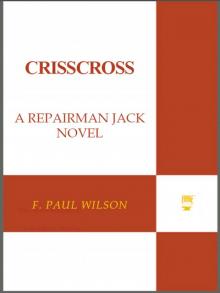 Crisscross
Crisscross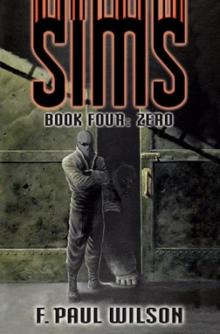 Ground Zero
Ground Zero Short Stories
Short Stories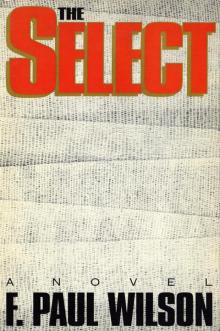 The Select
The Select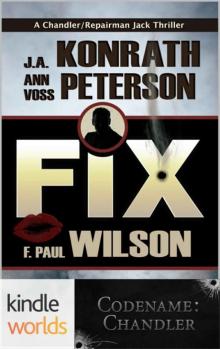 Codename
Codename Bloodline
Bloodline A Soft Barren Aftershock
A Soft Barren Aftershock The Tomb
The Tomb The Complete LaNague
The Complete LaNague The Tery
The Tery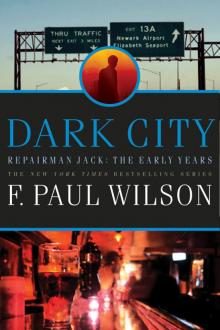 Dark City
Dark City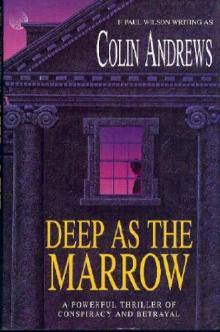 Deep as the Marrow
Deep as the Marrow The Fifth Harmonic
The Fifth Harmonic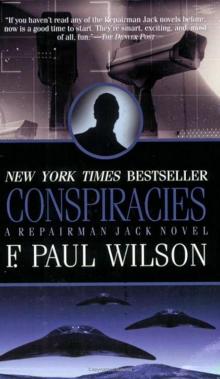 Conspiracies
Conspiracies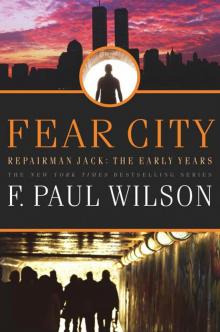 Fear City
Fear City Wheels Within Wheels
Wheels Within Wheels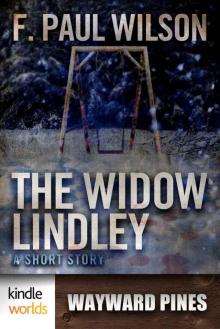 Wayward Pines
Wayward Pines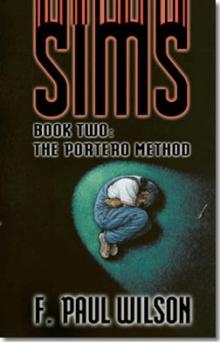 The Portero Method
The Portero Method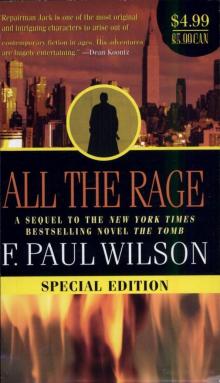 All the Rage
All the Rage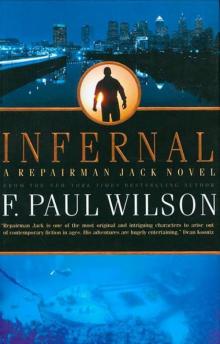 Infernal
Infernal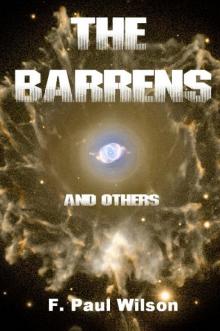 The Barrens & Others
The Barrens & Others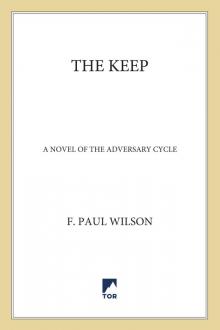 The Keep
The Keep Quick Fixes: Tales of Repairman Jack
Quick Fixes: Tales of Repairman Jack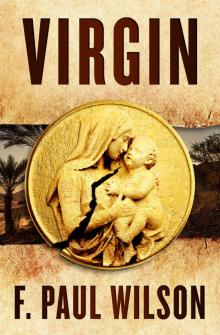 Virgin
Virgin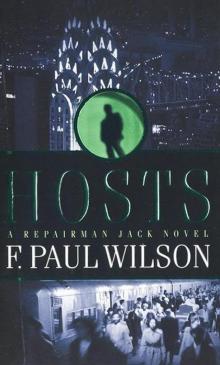 Hosts
Hosts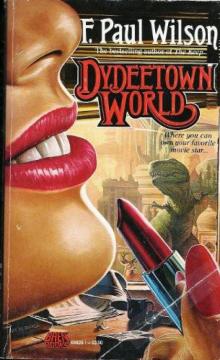 Dydeetown World
Dydeetown World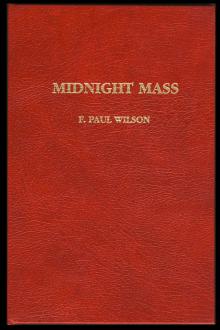 Midnight Mass
Midnight Mass Black Wind
Black Wind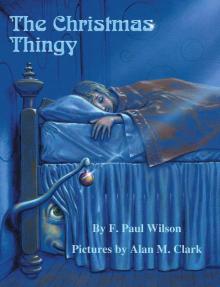 The Christmas Thingy
The Christmas Thingy The Last Rakosh
The Last Rakosh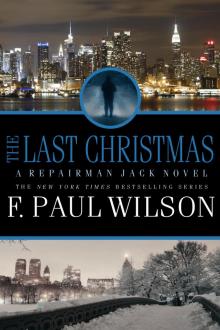 The Last Christmas: A Repairman Jack Novel
The Last Christmas: A Repairman Jack Novel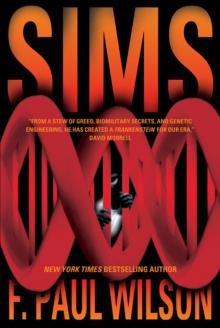 SIMS
SIMS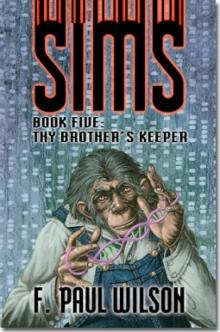 Thy Brother's Keeper
Thy Brother's Keeper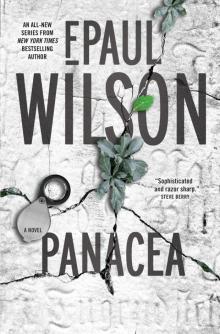 Panacea
Panacea The Touch
The Touch Scenes from the Secret History
Scenes from the Secret History Scenes From the Secret History (The Secret History of the World)
Scenes From the Secret History (The Secret History of the World)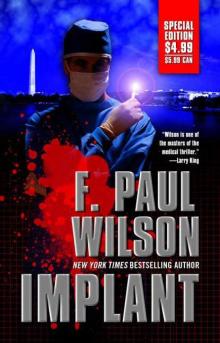 Implant
Implant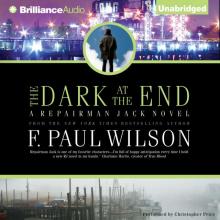 The Dark at the End
The Dark at the End Fatal Error
Fatal Error Wardenclyffe
Wardenclyffe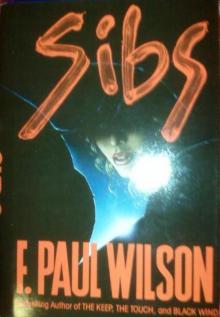 Sibs
Sibs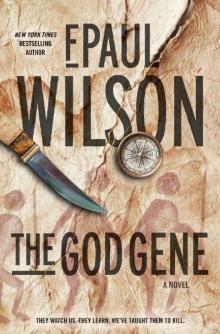 The God Gene
The God Gene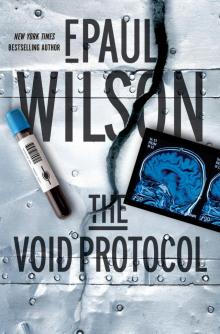 The Void Protocol
The Void Protocol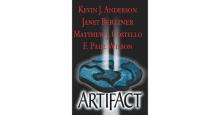 Artifact
Artifact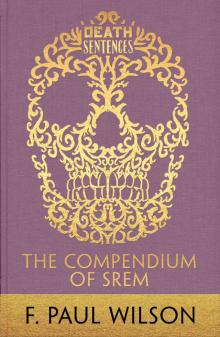 The Compendium of Srem
The Compendium of Srem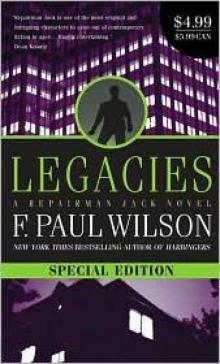 Legacies
Legacies Reprisal
Reprisal Jack: Secret Vengeance
Jack: Secret Vengeance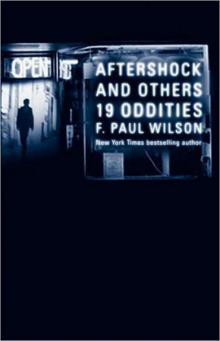 Aftershock & Others: 19 Oddities
Aftershock & Others: 19 Oddities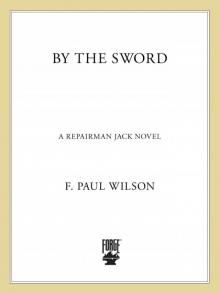 By the Sword
By the Sword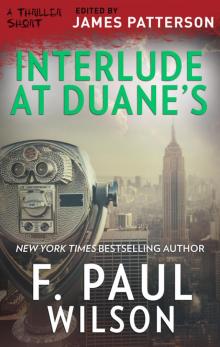 Interlude at Duane's (Thriller: Stories to Keep You Up All Night)
Interlude at Duane's (Thriller: Stories to Keep You Up All Night) Fatal Error rj-13
Fatal Error rj-13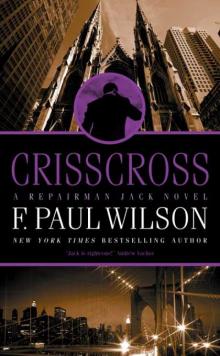 Crisscross rj-8
Crisscross rj-8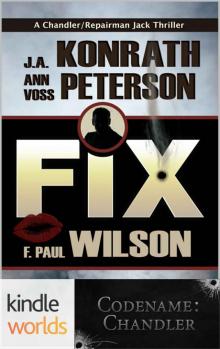 Codename: Chandler: Fix (Kindle Worlds Novella)
Codename: Chandler: Fix (Kindle Worlds Novella)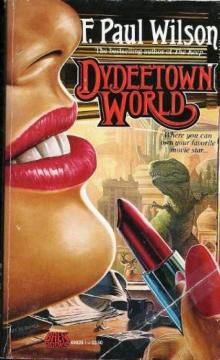 Dydeetown World lf-4
Dydeetown World lf-4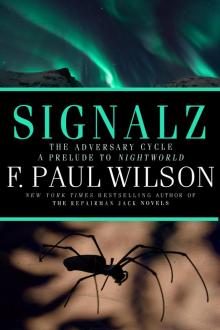 Signalz
Signalz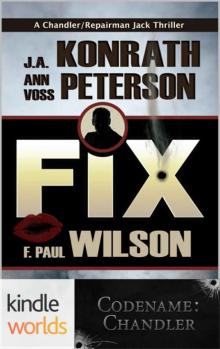 Codename_Chandler_Fix
Codename_Chandler_Fix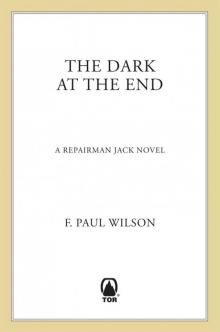 The Dark at the End (Repairman Jack)
The Dark at the End (Repairman Jack)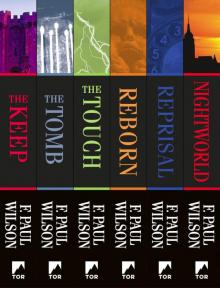 The Complete Adversary Cycle: The Keep, the Tomb, the Touch, Reborn, Reprisal, Nightworld (Adversary Cycle/Repairman Jack)
The Complete Adversary Cycle: The Keep, the Tomb, the Touch, Reborn, Reprisal, Nightworld (Adversary Cycle/Repairman Jack)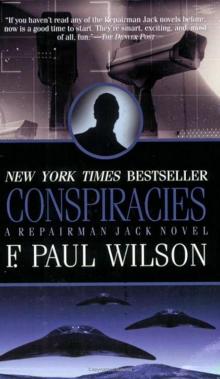 Repairman Jack 03 - Conspiracies
Repairman Jack 03 - Conspiracies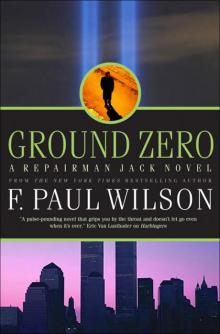 Ground Zero rj-13
Ground Zero rj-13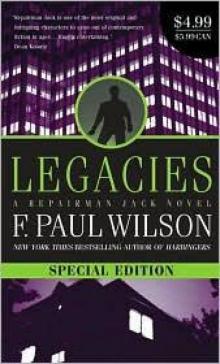 Repairman Jack 02 - Legacies
Repairman Jack 02 - Legacies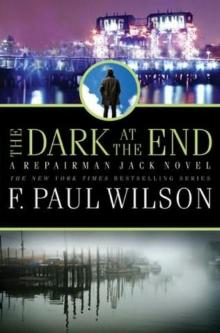 The Dark at the End rj-15
The Dark at the End rj-15![Repairman Jack [02]-Legacies Read online](http://i1.bookreadfree.com/i/03/21/repairman_jack_02-legacies_preview.jpg) Repairman Jack [02]-Legacies
Repairman Jack [02]-Legacies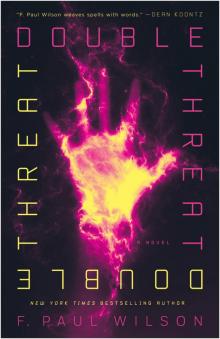 Double Threat
Double Threat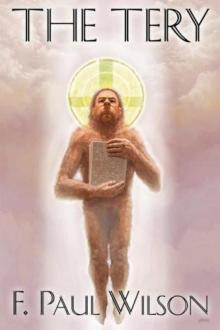 The Tery lf-5
The Tery lf-5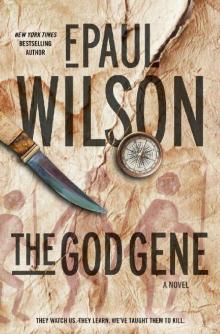 The God Gene: A Novel
The God Gene: A Novel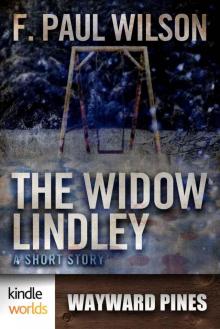 Wayward Pines: The Widow Lindley (Kindle Worlds Novella)
Wayward Pines: The Widow Lindley (Kindle Worlds Novella)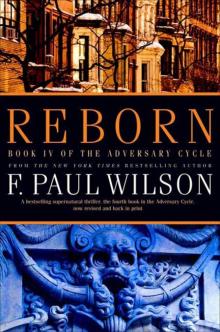 Reborn ac-4
Reborn ac-4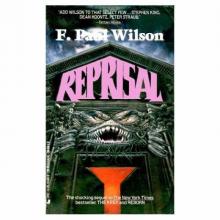 Reprisal ac-5
Reprisal ac-5 New Title 1
New Title 1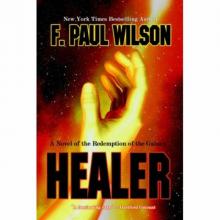 Healer lf-3
Healer lf-3 An Enemy of the State lf-1
An Enemy of the State lf-1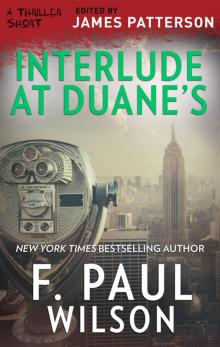 Interlude at Duane's
Interlude at Duane's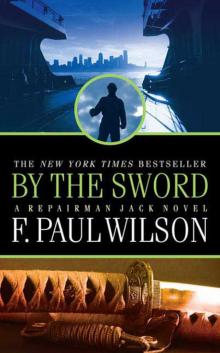 By the Sword rj-12
By the Sword rj-12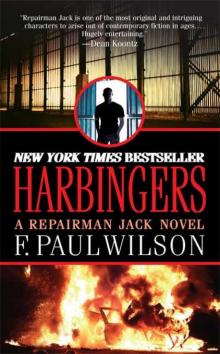 Hardbingers rj-10
Hardbingers rj-10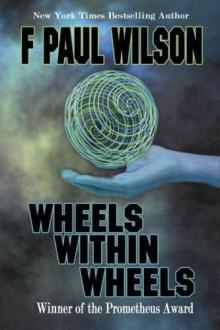 Wheels Within Wheels lf-2
Wheels Within Wheels lf-2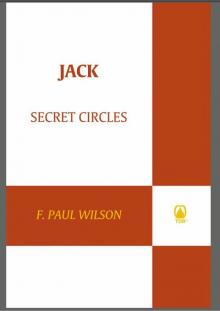 Jack: Secret Circles
Jack: Secret Circles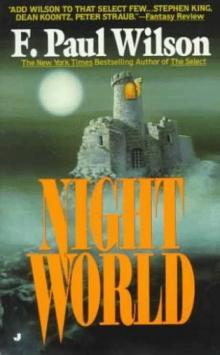 Nightworld ac-6
Nightworld ac-6 Quick Fixes - tales of Repairman Jack
Quick Fixes - tales of Repairman Jack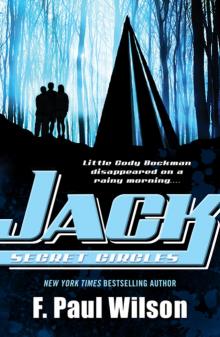 Secret Circles yrj-2
Secret Circles yrj-2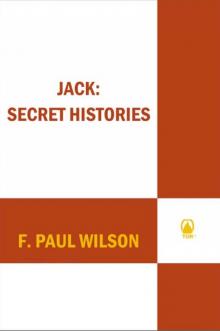 Jack: Secret Histories
Jack: Secret Histories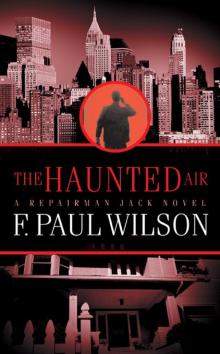 Haunted Air rj-6
Haunted Air rj-6 An Enemy of the State - a novel of the LaNague Federation (The LaNague Federation Series)
An Enemy of the State - a novel of the LaNague Federation (The LaNague Federation Series)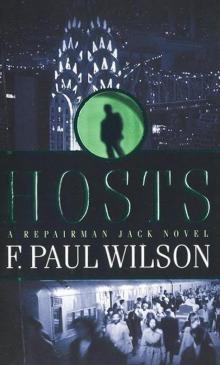 Repairman Jack 05 - Hosts
Repairman Jack 05 - Hosts Cold City (Repairman Jack - the Early Years Trilogy)
Cold City (Repairman Jack - the Early Years Trilogy)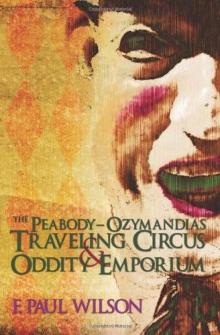 The Peabody-Ozymandias Traveling Circus & Oddity Emporium
The Peabody-Ozymandias Traveling Circus & Oddity Emporium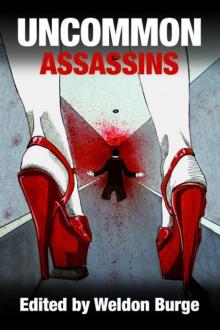 Uncommon Assassins
Uncommon Assassins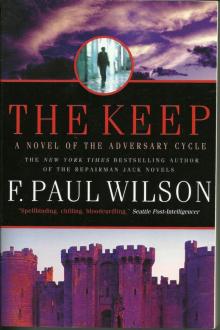 Adversary Cycle 01 - The Keep
Adversary Cycle 01 - The Keep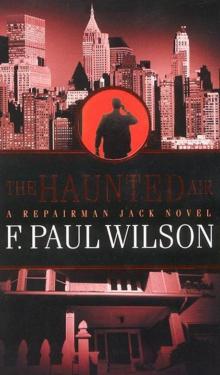 Repairman Jack 06 - The Haunted Air
Repairman Jack 06 - The Haunted Air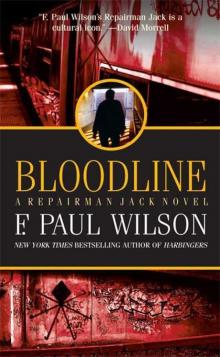 Bloodline rj-11
Bloodline rj-11 Ultimate Supernatural Horror Box Set
Ultimate Supernatural Horror Box Set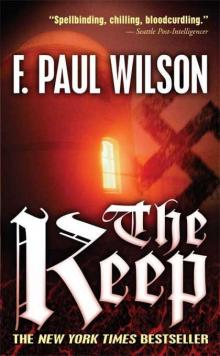 The Keep ac-1
The Keep ac-1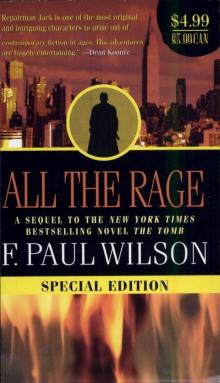 Repairman Jack 04 - All the Rage
Repairman Jack 04 - All the Rage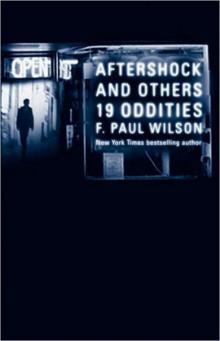 Aftershock & Others
Aftershock & Others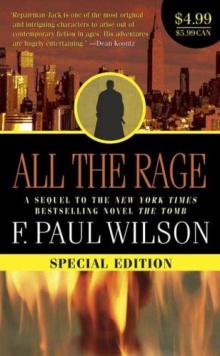 All the Rage rj-4
All the Rage rj-4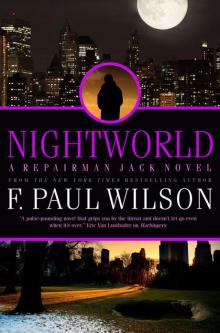 Nightworld (Adversary Cycle/Repairman Jack)
Nightworld (Adversary Cycle/Repairman Jack)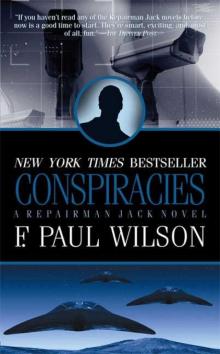 Conspircaies rj-3
Conspircaies rj-3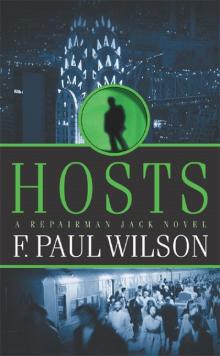 Hosts rj-5
Hosts rj-5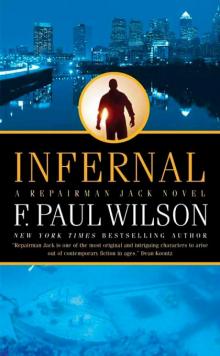 Infernal rj-9
Infernal rj-9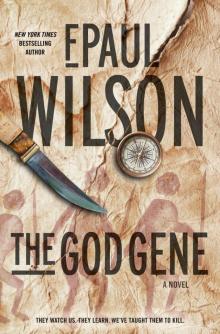 The God Gene: A Novel (The ICE Sequence)
The God Gene: A Novel (The ICE Sequence)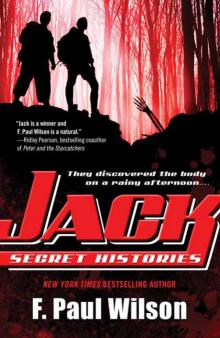 Secret Histories yrj-1
Secret Histories yrj-1